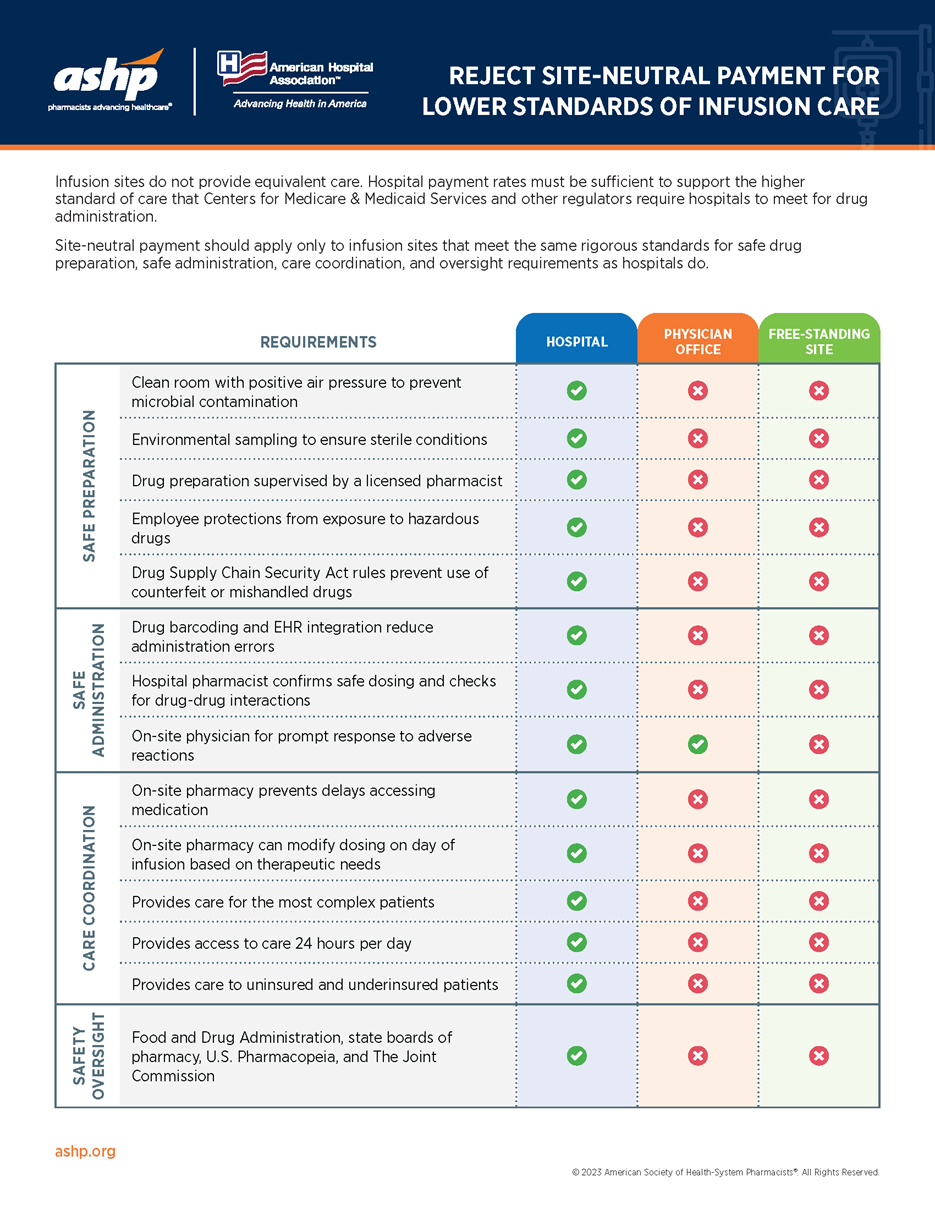AHA, ASHP Letter Opposing Site-neutral Legislation
| The Honorable Charles E. Schumer Majority Leader United States Senate Washington, DC 20510 |
The Honorable Mitch McConnell Republican Leader United States Senate Washington, DC 20510 |
|
The Honorable Mike Johnson |
The Honorable Hakeem Jeffries Democratic Leader U.S. House of Representatives Washington, DC 20510 |
Dear Leader Schumer, Leader McConnell, Speaker Johnson, and Leader Jeffries:
The American Hospital Association and American Society of Health-System Pharmacists write to you today on behalf of the nation’s hospitals and health systems as well as its pharmacists, student pharmacists, and pharmacy technicians with serious concerns that proposed site-neutral legislation in the House and Senate could reduce access to patient care and jeopardize patient safety.
Proposals to reduce reimbursements for drug administration services in hospital outpatient departments (HOPDs) inappropriately equate care provided in these hospital clinics with less complex care provided at freestanding physician offices. The care is not equivalent, and current payment rates take into account these important differences.
As highlighted in the attached chart, hospitals are required to take many additional measures to make certain that medications are prepared and administered safely while also providing important care coordination services for their patients. For example, unlike other sites of care, hospitals must take steps to ensure that a licensed pharmacist supervises drug preparation, rooms are cleaned with positive air pressure to prevent microbial contamination, and employees are protected from exposure to hazardous drugs. In addition, hospitals must remain in compliance with important safety standards such as those required by the Food and Drug Administration, U.S. Pharmacopeia, and The Joint Commission.
We are concerned that these proposed policies will force hospitals and pharmacists to scale back some of the critical services they are able to provide to their patients. Given that Medicare beneficiaries who seek care in HOPDs are more likely to be sicker and more medically complex than those treated at independent physicians’ offices, this may result in reduced access to care for some of our most medically vulnerable patients.
We urge you to oppose any policies that fail to take into account the costs of safely providing medication administration services to the complex patients hospitals serve.


